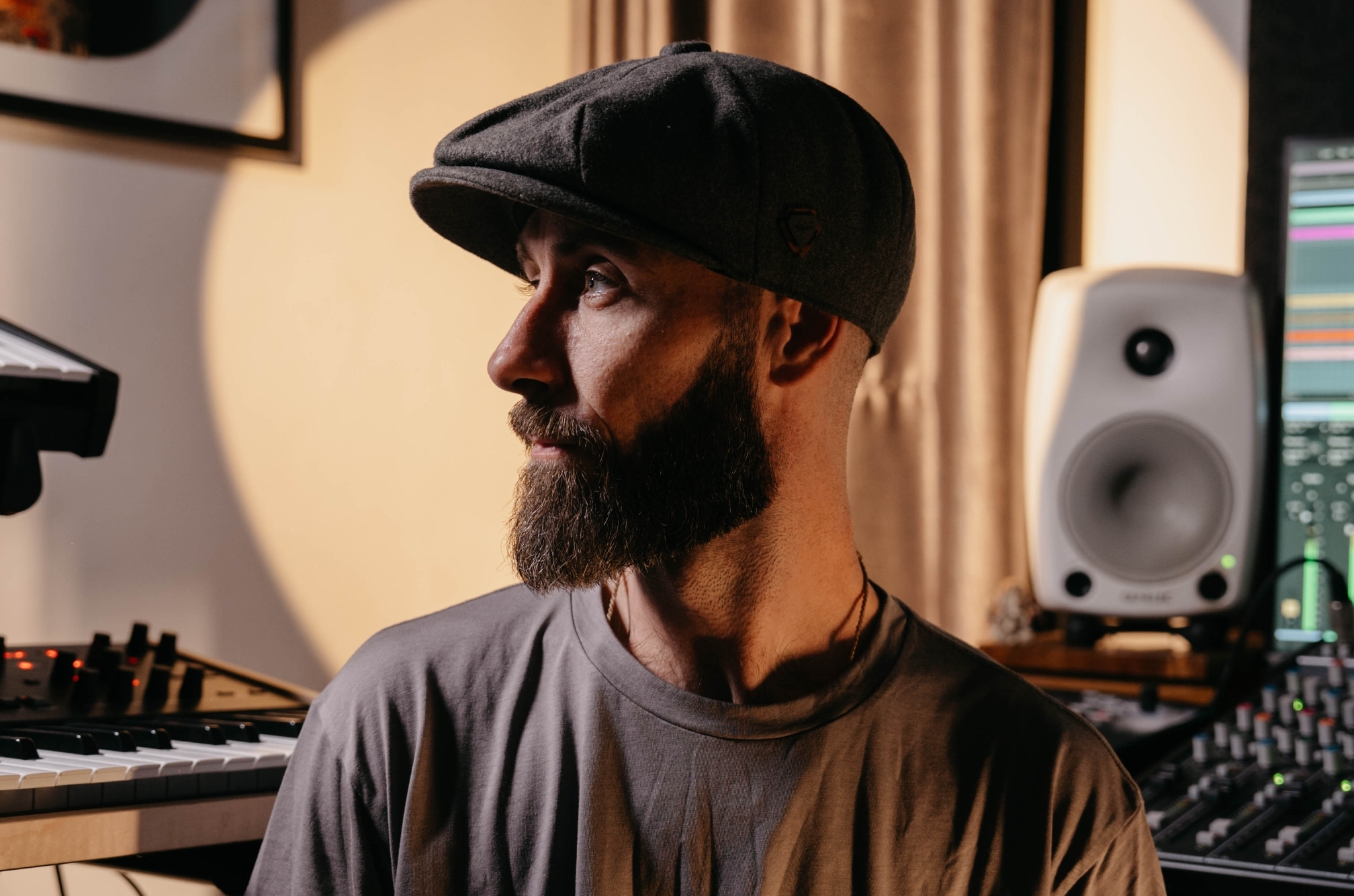 Interviews
Interviews
The Pippi Ciez perspective: “We must continue to evolve into breaking the rules of ‘genre’”
With a commitment to pushing sonic boundaries, the Inward Records co-founder shares on his deep connection to organic rhythms, championing emerging talent & fostering creativity
Introducing Pippi Ciez; a Birmingham-born artist with Spanish roots who’s made a significant mark on the global electronic music scene as a seasoned producer, DJ, and owner of Inward Records.
Pippi’s dynamic sound has captured the hearts of fans worldwide. His highly acclaimed Beatport chart-topping album ‘Multiple of Three’ on All Day I Dream has garnered support from heavyweights like Black Coffee, Lee Burridge and Keinemusik.
With a signature blend of Afro and organic house, Pippi’s performances are spiritual journeys that feed the soul, using live percussive drums, analogue sequencers, and MIDI controllers to create immersive soundscapes.
Drawing inspiration from a variety of cultures, Pippi Ciez crafts his music with a deep connection to organic rhythms and African grooves, taking listeners on profound auditory explorations. His residencies at iconic venues such as Ibiza's Cova Santa, Scorpios in Mykonos, and Savaya in Bali, have solidified his place among the scene’s most innovative and sought-after artists.
Next month, Pippi will bring his dynamic energy and signature sound to the Beatsolow event in Hong Kong on November 23, promising a set that will transport listeners into a world of spiritual, groove-laden house music. For those unfamiliar with his work, this is a perfect opportunity to dive into the artist's deep, organic sound. But before that, let’s get to know him a bit more in the interview below.
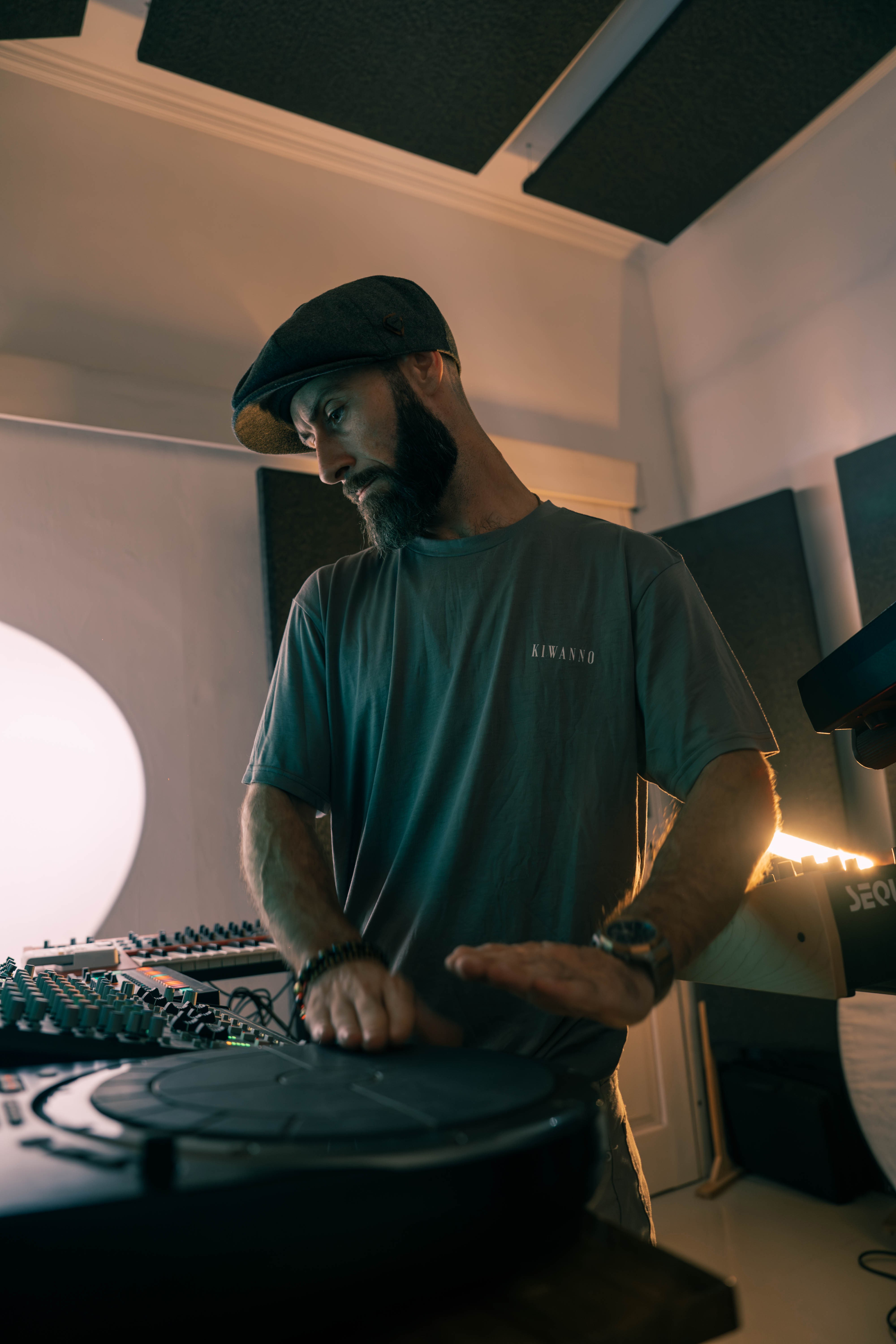
As someone who began their journey as an MC and transitioned into music production, how did that early experience shape your current approach to creating music?
Being an MC at the early age of 13 helped me understand writing arrangements, song structure and of course the culture of England where I was born. I then wanted to produce tracks that I could write lyrics for and this was my first step into the world of composing. Over time my ears were introduced to other sounds and this led to producing different genres of music. Still to this day, it shapes my sound as I feel you can always hear the culture in my music whether that is African culture, Indian, South American or of course, influences from the UK. You will actually be hearing my voice on a lot of music releasing in 2025 as this is something after all those years I’ve gone back to.
Let’s talk about your deep connection to both Afro and organic house; how did you come to favour these sounds as an artist?
When I first came into the electronic music scene I was in a duo called ‘Walking With Kings’ and our style was very much Melodic Techno. I knew I wanted to create a solo project and produce something more deep and organic. My first album '11.11' back in 2016 was a step in that direction where I was crossing live instrumentation and electronic instruments and at this time there was no ‘organic house’ genre, it was just a sound that was coming from inside me. I started to experiment with Eastern tuning at this point composing music in 432hz to create more of a spiritual journey through sound and just continued to go deeper down the rabbit hole I guess, hahaha. With Afro however it was different, I was continuing to compose an organic house sound and it was the infusion of African vocals on my existing sound that crossed me over into Afro house. I’ve always been a huge fan of the groove within the drums and believe the African rhythm is so iconic in making people move.
How do you see those genres evolving, and what role do you want to play in their continued growth within the global electronic music scene?
To be honest at this point in time I feel we have reached the peak of this sound and we must continue to evolve into breaking the rules of ‘genre’. After all, it's only time before something has to go full circle and back to the true roots of house music, whether that be disco, raw groove, melodic house or sophisticated techno. Bringing back the raw elements of electronic music I feel will breathe life back into the scene. I just always want to be ahead of the curve and understand what sound is going to surface next so I can be at the forefront of that sound.
Touring alongside major artists like Lee Burridge, Sebastian Leger, and Who Made Who must come with many learning opportunities. Any you can share with us?
Wow, yes! I continue to learn so much from Lee’s character, professionalism and crowd interaction. His energy can fill an entire room that speaks volumes and no matter what hindrances happen along the way good or bad he takes it on the chin turns up to the show and gives 1000%. So much can go wrong on the journey to three shows in three different countries in three days, he does this with complete focus and a smile on his face like a true professional.
Seb taught me the importance of playing and testing your own music, I’ve seen him many times control a crowd for hours with nothing but his own tracks, from new unheard studio material to tracks he is best known for. It's very easy for an artist to procrastinate and skip over their own music to play someone else’s record but having confidence in playing your own material is a skill only a few have like Seb. Also having exclusive tracks nobody else has got (as I’m still trying to get tracks off him to this day that he won’t let go of hahaha).
Playing alongside Who Made Who was certainly one of my highlights this year. Of course, we share the same method of performing live or hybrid, I was able to see how they set up and this certainly inspired me to enhance my live set-up. To see artists at that level perform is jaw-dropping, the way they create a journey weaving through their own music and reworking tracks you may know to live in the moment is incredible. This really helped me realise that I’m on the right path to reach the next platform in my career.
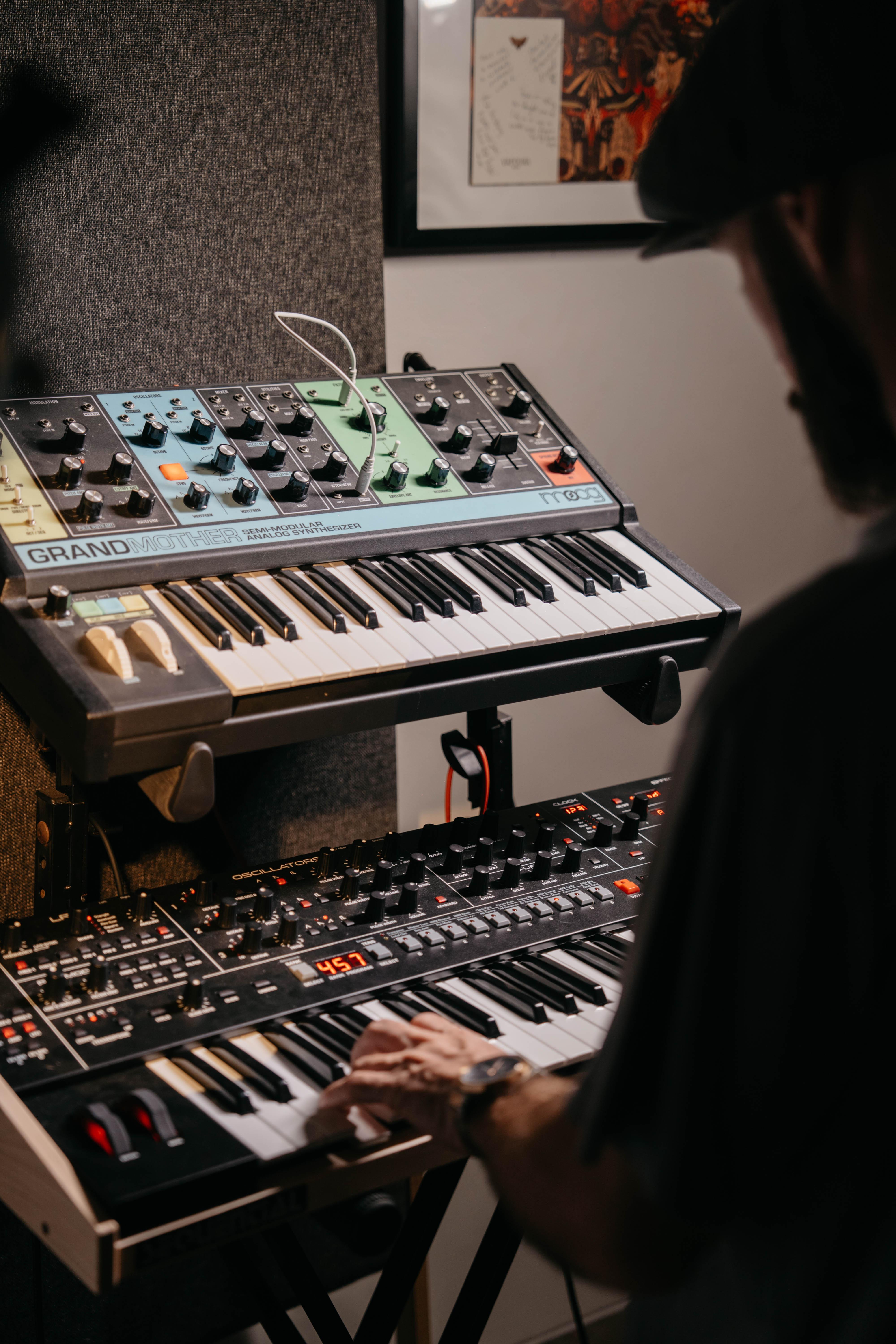
You’ve toured globally and performed at major venues like the Brooklyn Mirage and headlined events with All Day I Dream. How do you balance the energy and demands of performing live with your studio work and personal creativity?
For me, I’m a very in-the-moment person trying to stay as present as I possibly can so switching on and switching off is very important and can only come with experience of doing all the above. When I’m on the road and touring I’m very much focused on the show and tend not to be productive at all. When returning home I recharge as much as possible and have so much excitement to get back in the studio and create, sometimes I may be away for nearly two months and finding this neutral balance I feel is key to being the best you can be in every area.
With residencies at iconic venues like Cova Santa in Ibiza, Playa Soleil, and Savaya in Bali, how do you adapt your sound to each unique venue?
As I play live, I’m lucky that I get to visit the venue before the show starts for soundcheck, my set is pretty much set in stone although I will have sections of the performance I can take one way or another depending on the energy in the crowd. I believe it is crucial to play to the surroundings you are playing in and this really plays on my mind when I am preparing my set weeks before the show. I will also make last minute adjustments in the hotel room if I have just received some new masters or fresh promos that I feel could work on the day or night. I do try to incorporate a medium in the sense of tracks that can work in an open air environment as well as a club and there tends to be a fine line between the both.
In your opinion, who is the most underrated DJ in Asia and why?
Marco Loco without doubt is one of the best DJs I have ever witnessed for energy, performance, tricks, crowd interaction, and track selection—he has it all in bundles! I first met Marco Loco when I was living in Ibiza and he was my teacher from very early, I would sit and watch him for countless hours control crowds with magical music. I believe he has been living in Asia for close to a decade now and still performing non-stop. For me he deserves to be up there with the best.
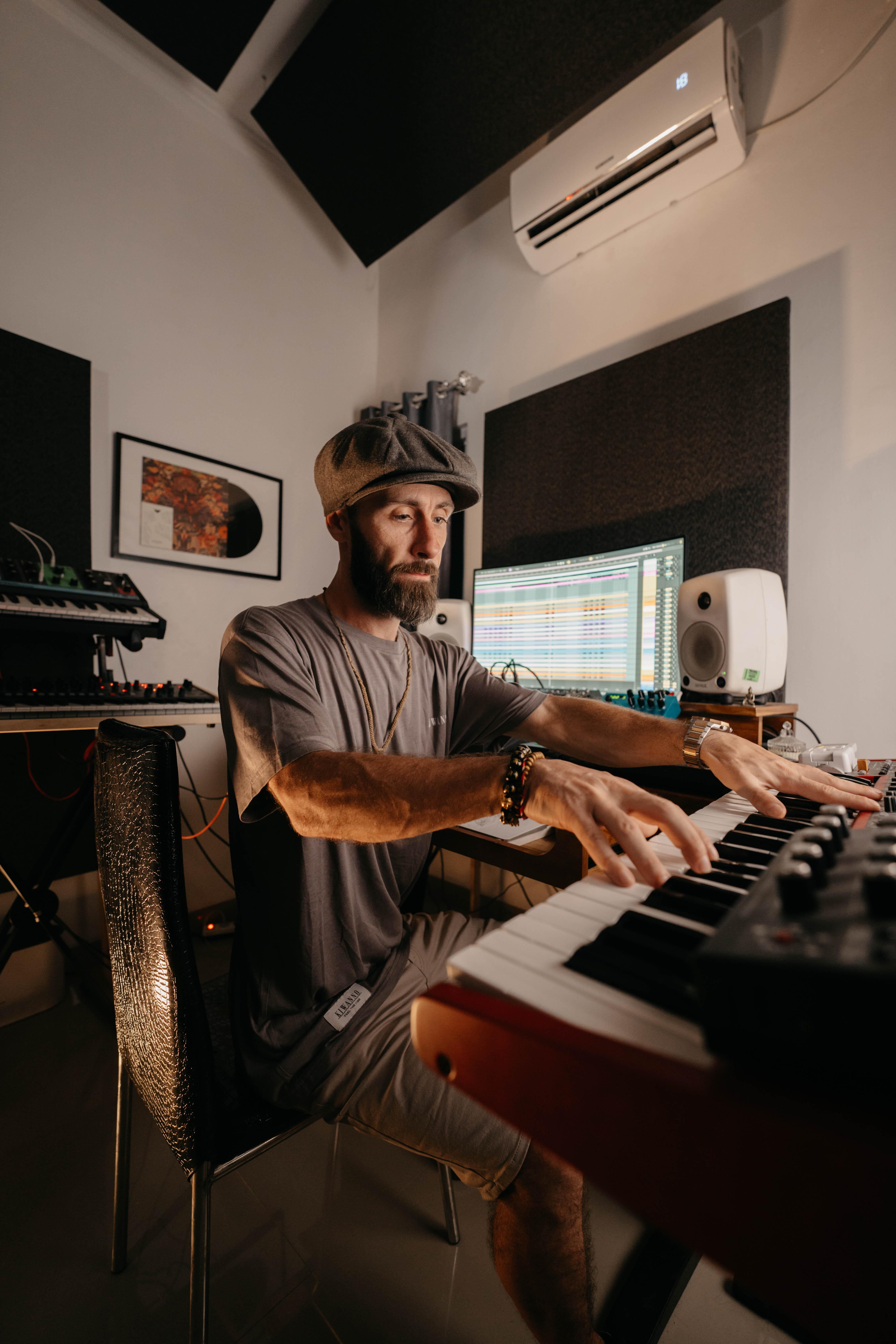
Read this next: The Guest List: Themba drops 10 rooted gems that inspired his debut album Modern Africa, Pt I – Ekhaya
You’ve performed live using percussive drums, analogue sequencers, and MIDI controllers. How do you approach integrating these elements in a way that enhances the spiritual and immersive journey your sets are known for?
Have to be careful what I say here, I don’t want to reveal my secrets, hahaha. My live instrumentation around my set is a true backbone to my sound, it holds the rhythm throughout an entire performance this is what creates the depth of the journey. I never want to take you out of the groove so when adding or removing parts of the rhythm it needs to happen seamlessly and that is what makes the story I am telling so immersive. Even when hearing a track, you may know it is never the same, it’s never just the original but much more.
Your music often features collaborations with other artists. How do you approach these collaborations creatively, and what do you look for in an artist when deciding to work together?
Being in the studio and working alone is something I’ve been very comfortable with for a long time. However, I feel a track is never complete until there is a live element involved whether that is an instrument or a vocal, I feel this adds depth and feeling that a digital environment can not replicate. I really enjoy working with artists, it is the icing on the cake, the final process that solidifies the track to be ready for the stage. I look for feelings, emotions, and something unique inside an artist and usually study them for a while before approaching them to work together. Collaborating with producers however is something very new to me only within the last year would you see me collaborating with other producers like Fraser, ASKAR, Chukku, Foozak to name a few and this has been a big learning curve for me to be able to see how another producer would work.
Read this next: The Guest List: Kitty Amor's African electro beats unleashed
The label which you co-founded, Inward Records, has become a respected label in the Afro and organic house scene. As a label owner, what do you look for in the artists you sign?
With Inward I always wanted to create a doorway for new producers to have an entrance into the industry as it is always difficult to be heard by established labels in the scene when you are a brand-new artist. I feel we do this very well for example with Alex Wann, Peaty, Joseph (CH) & many more, we were the first record label to sign all these artists and now they have become well-known figures in the scene, working with and supported by the best in the industry. I wouldn’t say I look for something in the artist but within the music whether they are well-known or just starting out, if the music talks to my soul I’m certainly willing to put it out.
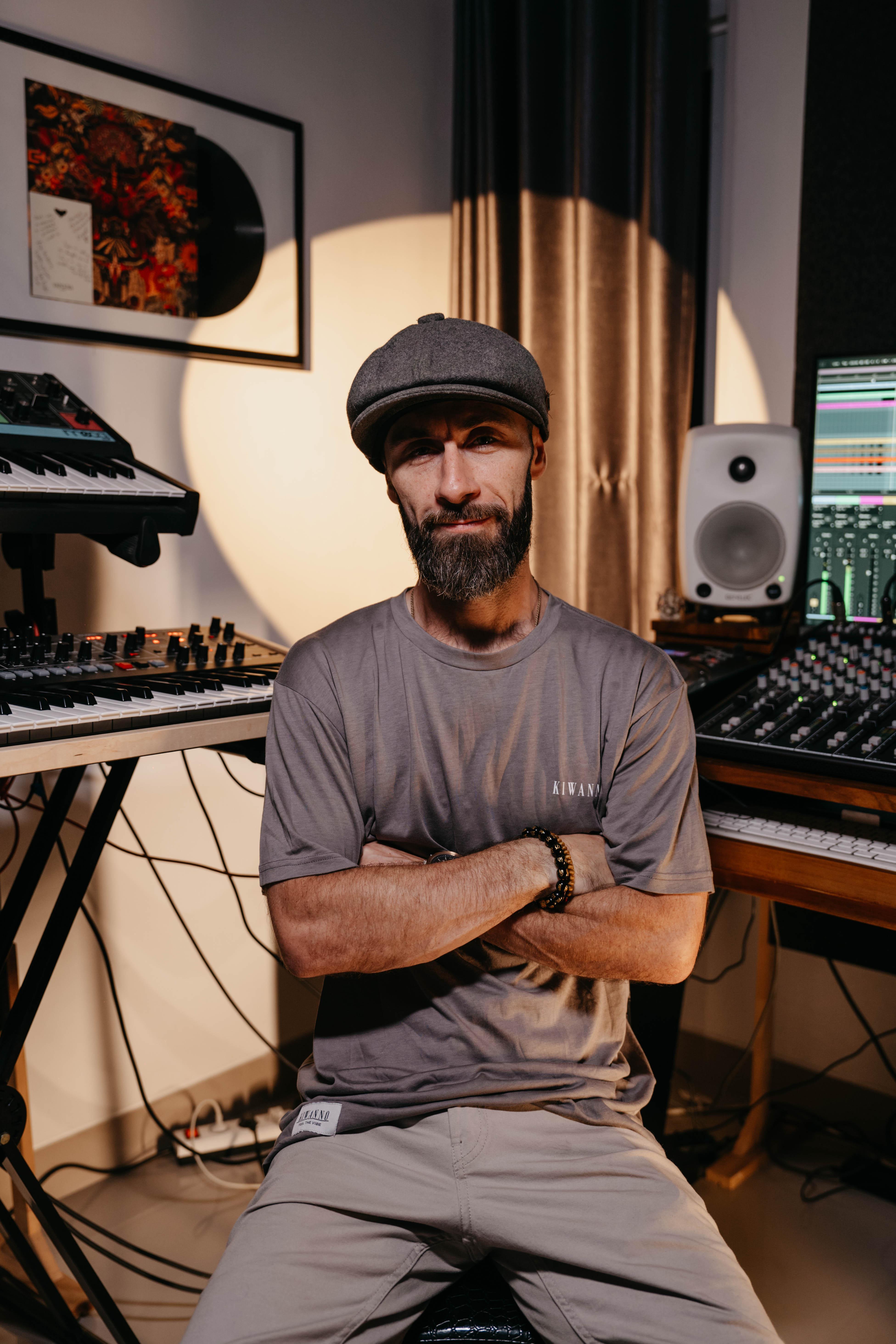
The concept behind Inward Records is to create music that “speaks from within”—how do you maintain that ethos in the face of an ever-changing music industry?
We do stand by that phrase on Inward. Everybody has a voice that allows their music to come from within, staying true to their self and not worrying too much about what is going on around them in the music industry. We are aware of the constant change happening especially now I feel a big shift is about to take place in 2025 and we are embracing that change to open the doors a little wider and experiment in newer, fresher composition and production.
Read this next: Get to know GNDHI, Bangalore's multi-instrumentalist producer taking over global stages
And as a DJ and producer, how do you yourself balance the evolving trends in electronic music while staying true to your own distinct style?
I am certainly using all of my experience and knowledge I have gained over the years to expand my sound, crossing over multiple genres I have produced over my career. Working on the new project with ASKAR has certainly started a new wave of sound I have been testing throughout 2024 in every show and the feedback has been incredible. It’s unlike anything I have created before and to be honest I do not believe there is much out there that sounds like the music we have been making. We all have to evolve over time, not to what is current but to what we predict is going to come next. I was a little worried about how people would react to this new sound as it is not the typical afro/organic house I am known for but as I explained earlier, I think we need to be ahead of the curve now and prepare for the change in sound that is going to take place.
Looking forward, what are your goals for the future of your music career?
In early 2025 we plan to launch a new record label entitled I/O—this is something everyone can look out for and a lot more information will be dropping over the next several months. My third album will be released on Inward in Spring entitled ‘Multiple of Six’. I want to continue excelling to be the best artist I can possibly be, there is always more room for improvement to learn and practice, but I will continue to climb the ladder as I believe deeply; I have a message that the world needs to hear. I’m proud of where I have reached but nowhere near where I plan to get. I would love to have my own residency in Ibiza someday and in 2025 I’m really going to work hard with releases and show performances to move closer to this goal. There are still venues and festivals I would love to play Space Miami, DC10 for Circoloco, and Robot Heart Burning Man are all certainly high on that list. Audio for video has always been a dream of mine since a boy and one day I’m sure this will come to fruition in scoring and sound designing for film.
Read this next: New Delhi deep house maverick: Hamza Rahimtula's global dance voyage
What’s one thing the world doesn’t know about Asia’s music scene?
It’s certainly from my view the fastest growing scene in the world right now. There is a buzz here that I can’t quite explain, it just feels like a ticking time bomb until it becomes one of the cornerstones in the electronic music industry. For example, Savaya has rapidly grown into being a Top 10 club globally, with international headliners appearing every single weekend. Bali is a place where people travel from all over the world to attend these events and for me, it's now the party capital of Asia. To see what has happened over the last three years is just wild and to think this is just the starting point really sets the tone for what the future can hold. I’m very grateful to be part of this growth and to witness the rise in real-time.
Thank you Mixmag it was always a dream to have an interview with you and I’ll see you in Hong Kong next month!
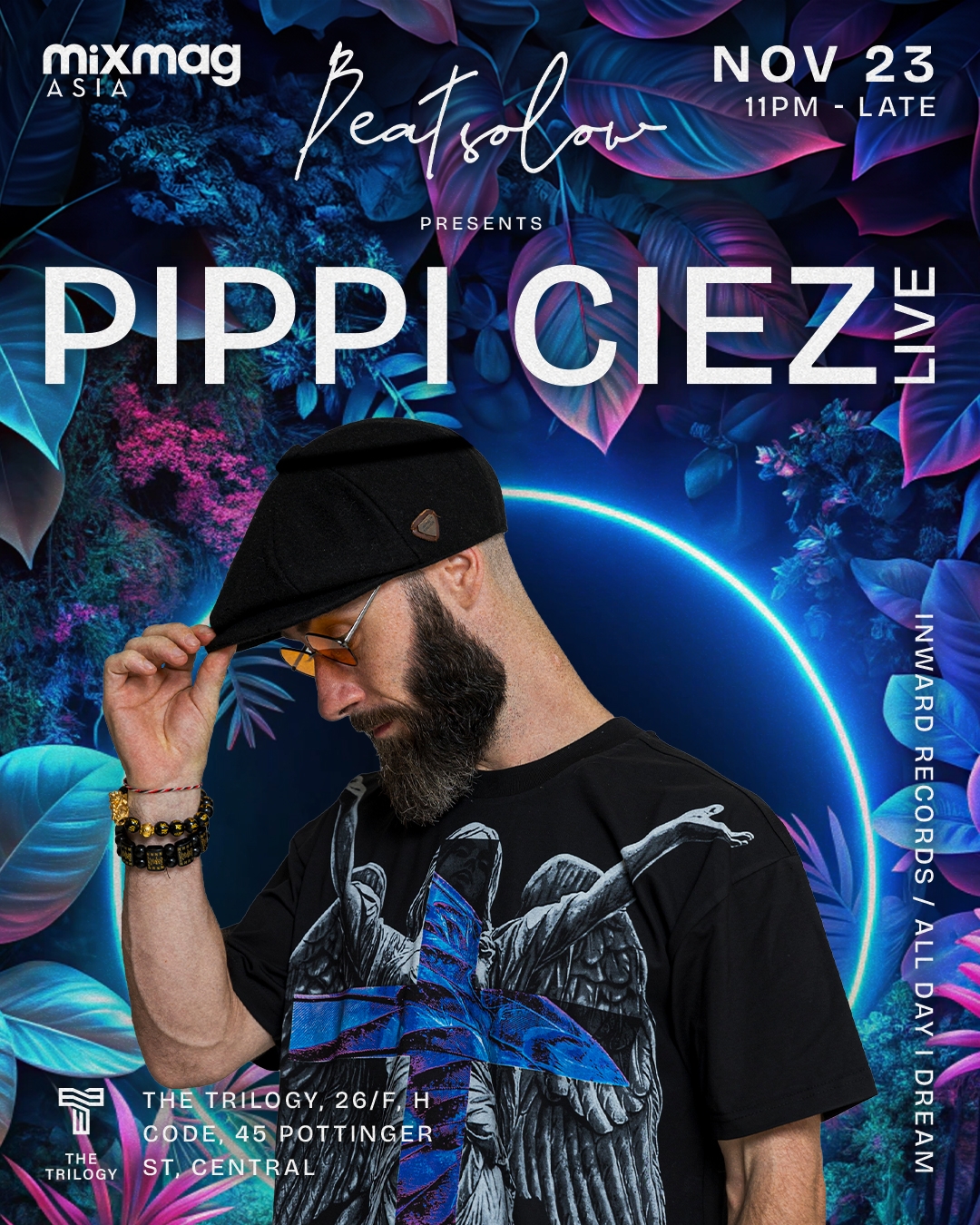
Pippi Ciez will perform at the Beatsolow event in Hong Kong on November 23. For more updates, head over to the Beatsolow official Instagram account here.
[Images via Steven Limnardo]
Amira Waworuntu is Mixmag Asia’s Managing Editor, follow her on Instagram.
Cut through the noise—sign up for our weekly Scene Report or follow us on Instagram to get the latest from Asia and the Asian diaspora!


